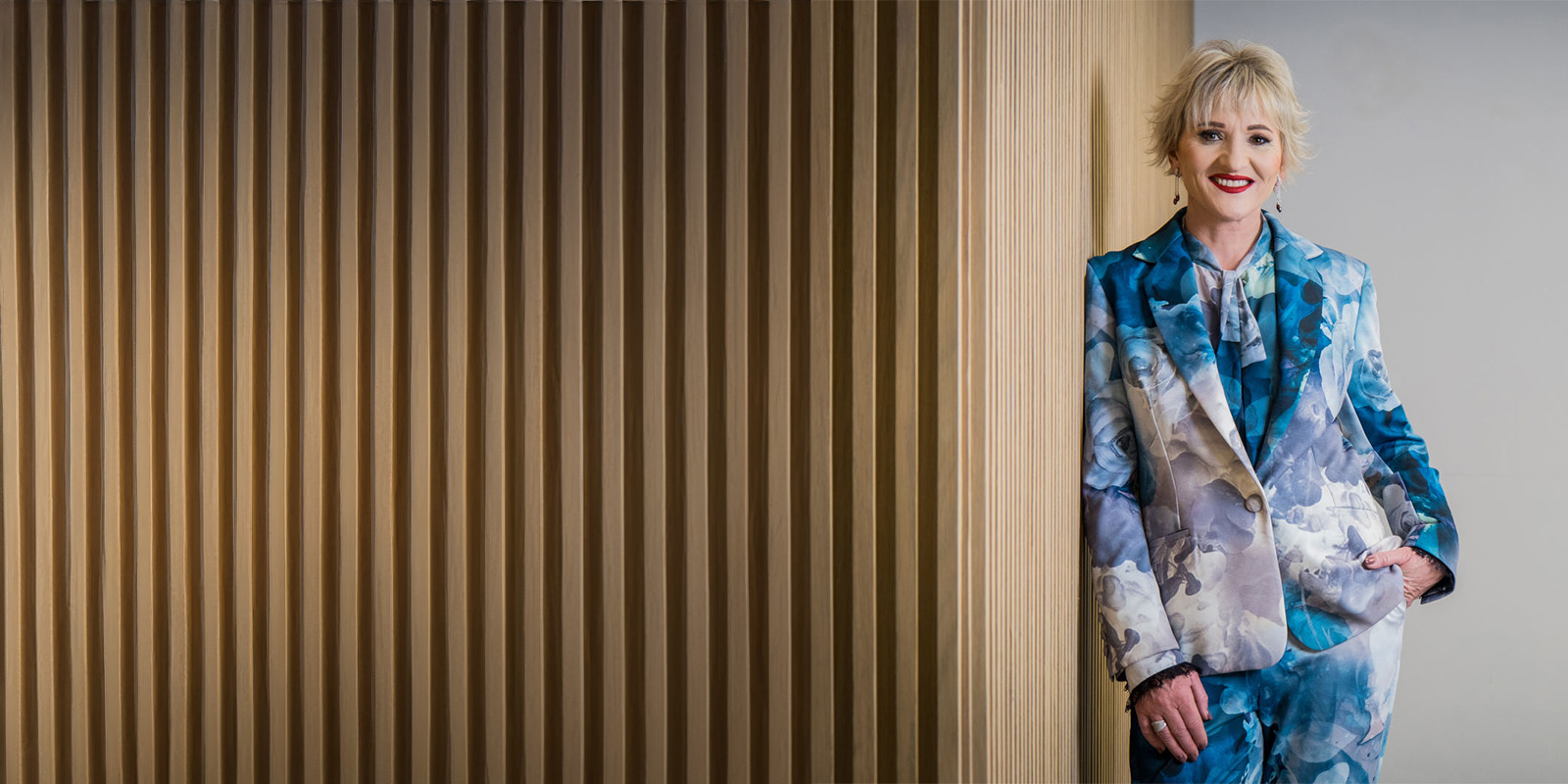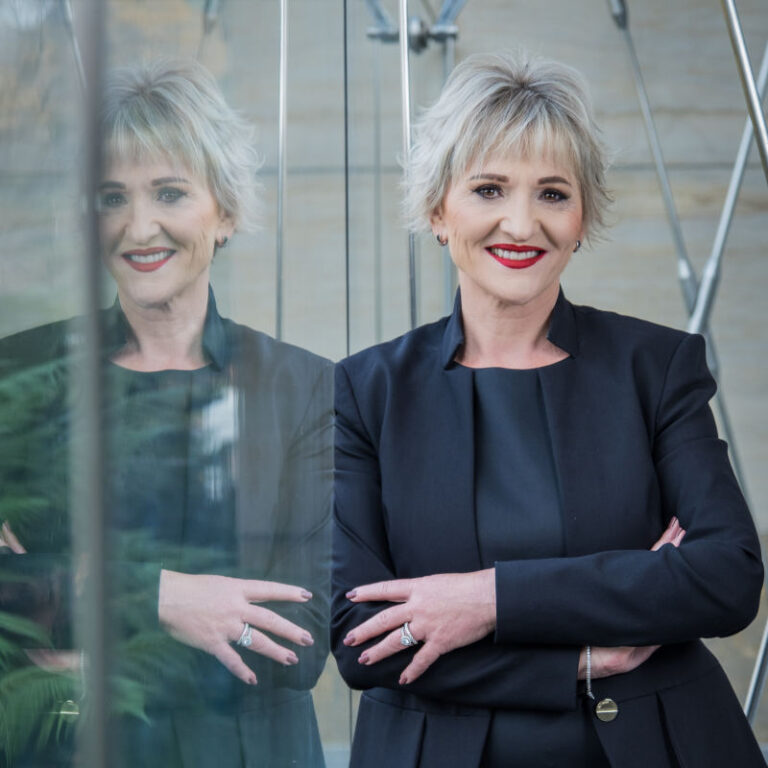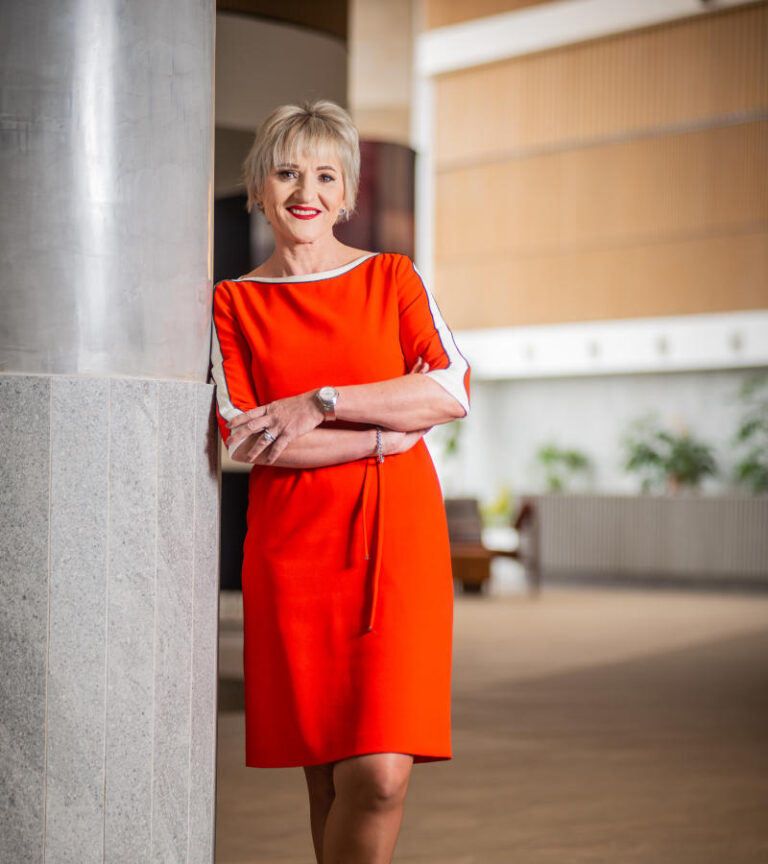
In South Africa, where women leaders are few and far between, Jeanette Marais has defied the odds to scale the heights of leadership.
Last year, she was appointed the first female group CEO of Momentum Metropolitan Holdings (MMH), the third largest life insurer in South Africa, listed on the Johannesburg Stock Exchange. This appointment also made her the first woman to be appointed as CEO of any large, listed life insurance group in South Africa.
Looking back at her career, Marais attributes her success to her positive mindset, which embraces challenges as opportunities for growth.
“I’ve never had a female boss in any of the organizations I’ve worked at. And I can’t tell you how many times I have been asked to pour the tea and take notes at meetings,” she said. “But I realized I could either spend all my energy fighting these injustices or adopt a different attitude toward them.”
“I always knew there would be a time when companies would be forced to look for more diversity and hire women leaders. And I wanted to be there when that happened. I told myself I’m going to work harder and give it more and I’m going to be ready when an opportunity comes within reach.”
By reframing adversity as a catalyst for growth, Marais learned to harness resilience as a leadership tool, enabling her to navigate crises courageously and emerge stronger in her career.

Leadership upskilling
In 1990, Marais kicked off her career in actuarial product development and marketing at Momentum, a financial services company that is part of the South African-based Momentum Metropolitan Group. She held executive-level positions at financial services firms PSG Asset Management, Stanlib, and Old Mutual before joining investment management firm Allan Gray in 2009 as co-head of the retail business.
In 2013, Marais found herself at a career crossroads. “I was a little restless and I had the aspiration to lead a financial services company as CEO. And I thought to myself: Maybe I need a formal qualification in management,” she said. “To be honest, in my work life, I’ve had very little opportunity for any formal learning and leadership development. But I’ve always had this MBA thing at the back of my mind.”
Encouraged by her husband to further her professional development, she signed up for an executive MBA at IMD Business School. “Leadership development was my prime focus, and IMD was right up there in terms of rankings,” she explained.
A top takeaway from the EMBA was learning new business management tools to generate business insights and drive strategic decisions.
“I had a product idea I was toying with a year before my EMBA. I finally developed it into a business plan for a project in a strategy module by applying a new methodology we were taught, and it won the class prize,” she said. “The practical aspects of the EMBA were absolutely invaluable because I never had the time to fully explore that idea until I was forced to for the program.”
Marais, who juggled her duties as executive director while pursuing the MBA, brought the product to market, which became an instant bestseller. “It opened a brand-new market for the business. With the new retirement savings product, also known as an umbrella pension fund, my previous firm today has a new source of clients,” she said.
Forged in crisis
However, the highlight of her EMBA was learning how to lead effectively in times of crisis. Marais recalled an exercise that was held in collaboration with the Swiss Armed Forces as part of the EMBA degree to foster the skills of the participants in crisis management.
“Our cohort was taken to a bunker in the Swiss mountains for a scenario-based exercise. In the simulation exercise, we played the role of Zurich airport’s management team, which faced multiple challenges during the Easter weekend,” she said.
“Over three days and nights, we were thrust into simultaneous crises. Planes were grounded, passengers got stranded, and food ran out. It was a round-the-clock simulation that really tested us to the limits. At three o’clock in the morning, someone would knock on our doors to update us on new crisis developments, and we had to find solutions to solve them.”
For even the most seasoned business leader, a crisis can be a nerve-wracking experience. But Marais found herself energized by the chaos. “I went without sleep and without showering. I went into a mode that even I found scary,” she said. “But somehow, something just clicked, and my strength and capabilities all came together.”
After completing her EMBA, Marais was keen to put her learnings into practice by driving positive organizational change at Allan Gray. But things didn’t go as planned.
“With my newfound knowledge, I started challenging some of the ways in which things were done,” she said. “But the firm wasn’t quite ready for the changes I thought I could bring about.”
In early 2018, she took up the role of Deputy CEO at MMH, which was born from the merger of Metropolitan Holdings and her previous employer, Momentum Group, in 2010.
“A couple of MMH board members I knew approached me and asked me to return to turn around the business. It felt like an honor to have been asked to return to the company where I started my career, which is somewhat my ‘spiritual home.’ It was an incredible opportunity I could not ignore.”

Leading with a human touch
Marais acknowledged that the EMBA played a significant role in bolstering her leadership abilities and helping her navigate challenges confidently. She credits Professor Ben Bryant, Professor of Leadership and Organization for helping her address her skills gaps and guiding her towards leadership growth. “It was through the coaching and constructive feedback in the workshops and seminars that I got to know myself better. The process showed me where my blind spots were as a leader, which then gave me the opportunity to work on them,” she said.
She shared a personal anecdote. “I am competitive and like to win. I’m also incredibly tough when it comes to driving results,” she said. “But I’ve learned to balance my drive with ‘heart,’ which is centered on the belief that we need to balance courage with care: You can only deliver through people, and people are your force multiplier.”
Pointing to the financial services industry, which has undergone profound transformation due to disruptive technologies, she explained why human-centered leadership is all the more important today.
“Thirty years ago, it was a very different world where it was all about human contact, and products got consumed through financial advisors. Today, people want to manage their financial decisions on their own, and hard technology is forcing businesses to rethink how they deal with clients,” she said.
“While it’s true that everyone’s talking about artificial intelligence, bots, and machine learning, the key issue we should really look at is: How can we keep the human connection? Leaders and organizations can easily become so focused on efficiency and cost savings that they lose the human touch. But clients are human beings with hopes, fears, and dreams, and unique financial journeys. That’s why we need to radically rehumanize the way in which we deal with people.”

